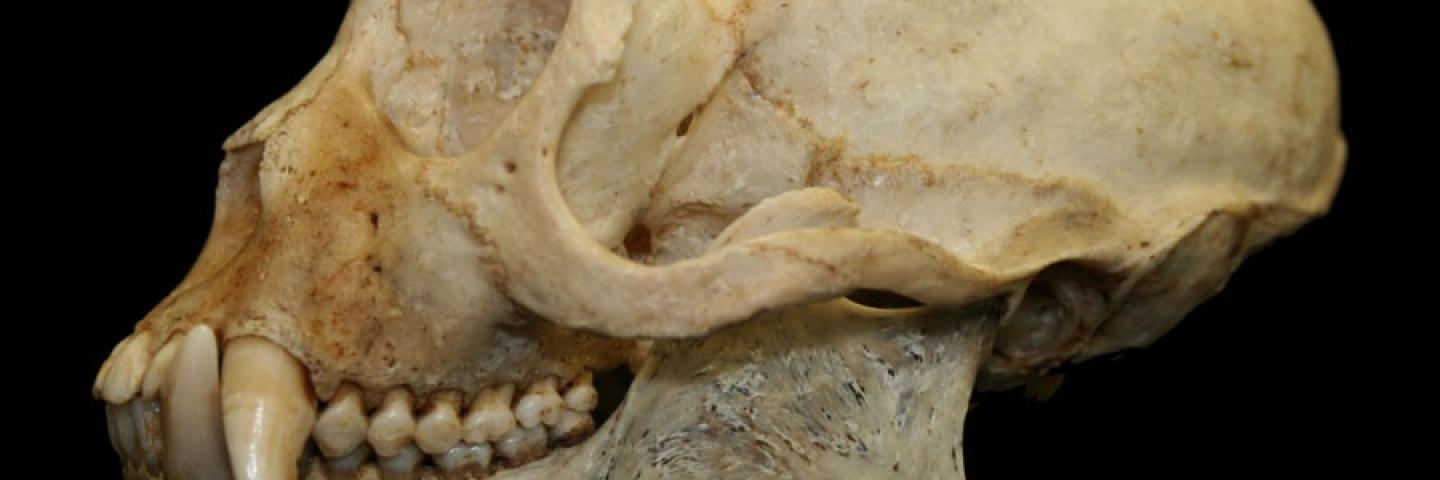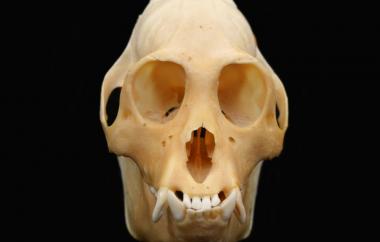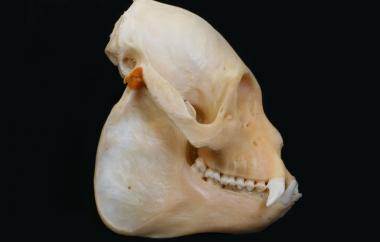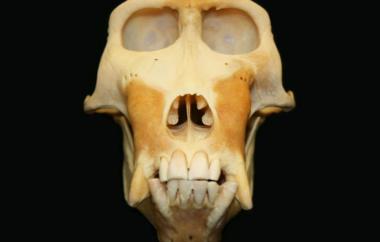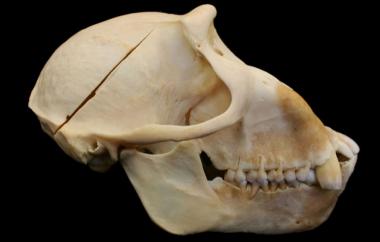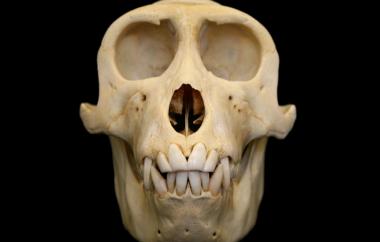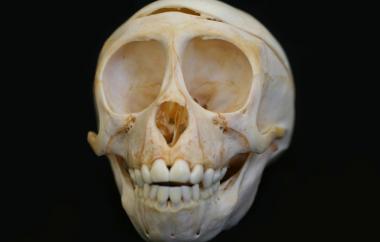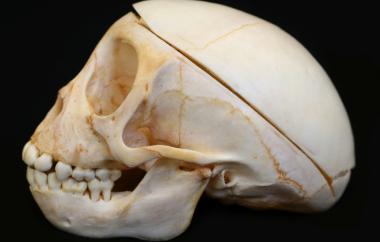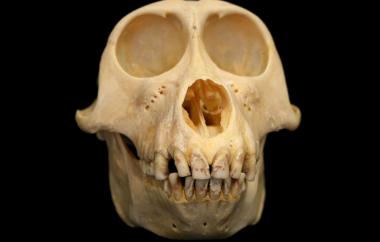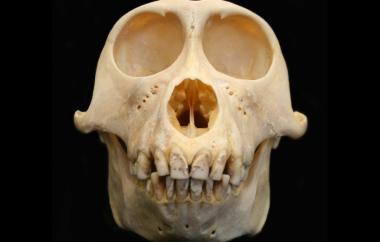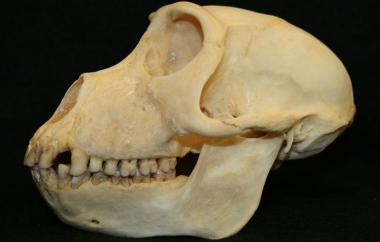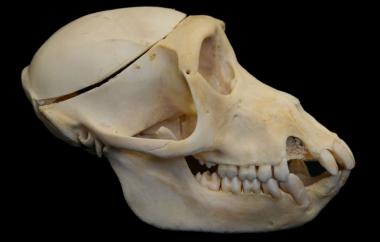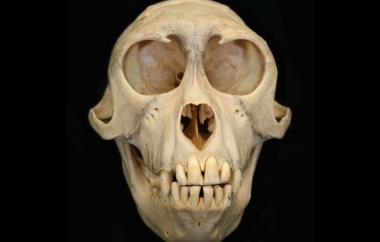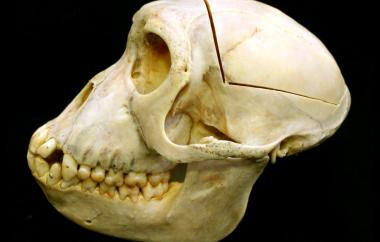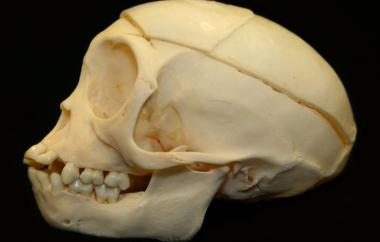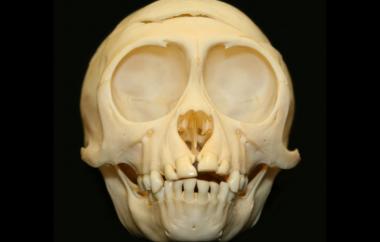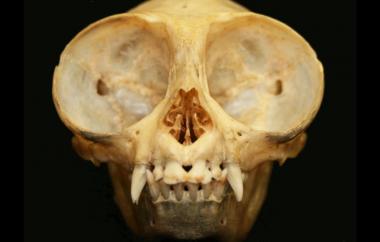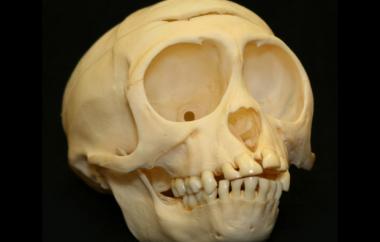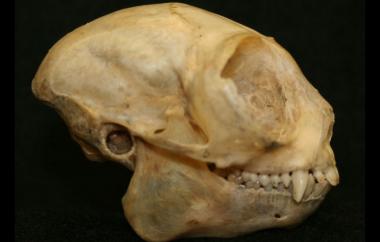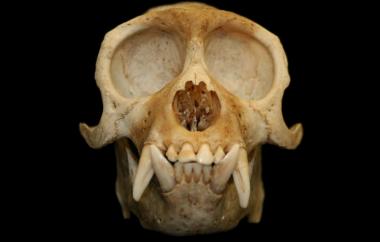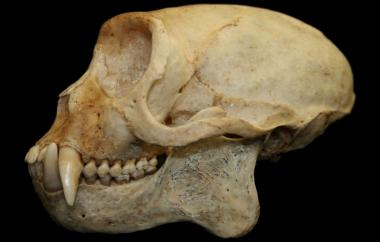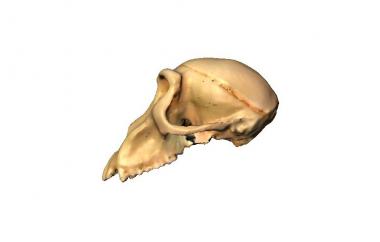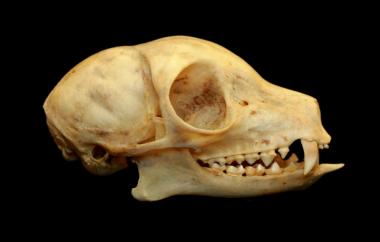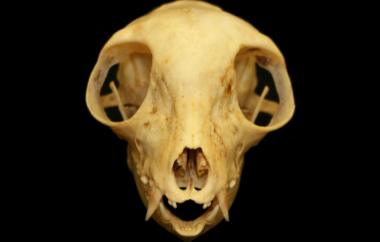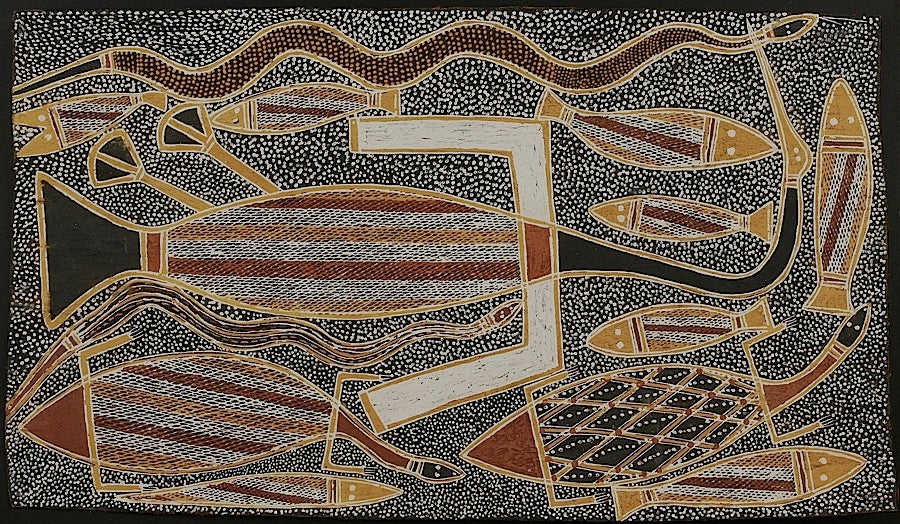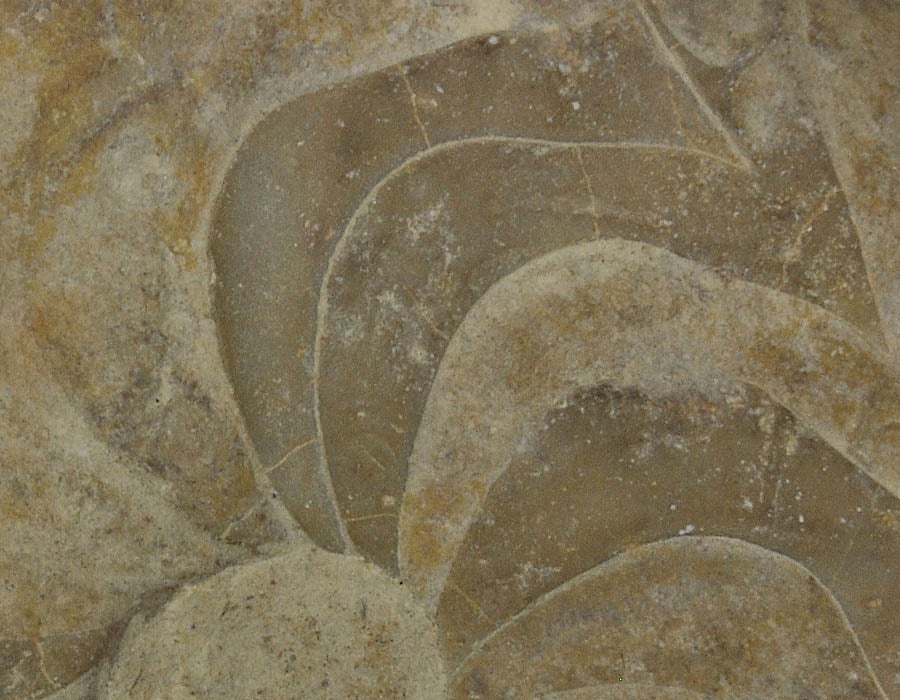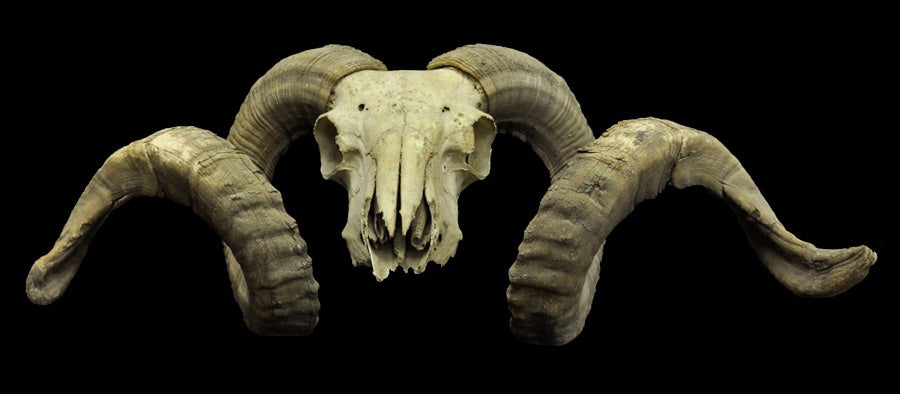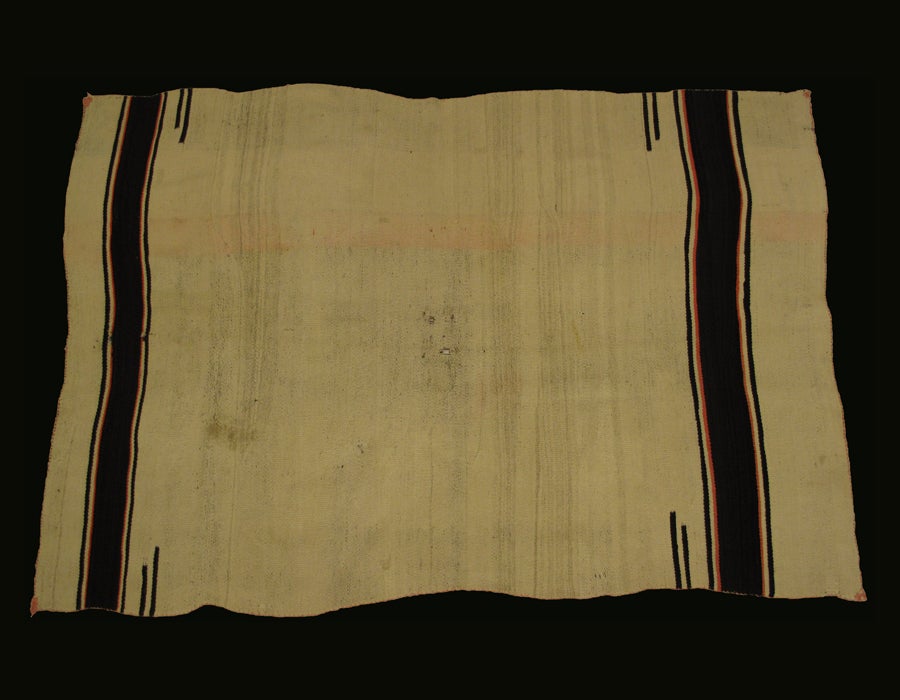Housed in the Department of Anthropology, the University of Oregon Comparative Primate Collection (CPC), is one of several important natural history collections administered by the Museum of Natural and Cultural History. Often referred to as the “Grand Collection” after its most important contributor (anatomist Dr. Theodore I. Grand, now at the National Zoo in Washington DC), the CPC houses over 700 primate and 125 non-primate vertebrate skeletal specimens. The primates consist mostly of Old World monkeys, but there are numerous prosimians and New World monkeys as well. The non-primate collection includes a variety of placental and marsupial mammals (mostly carnivores, insectivores, and rodents) from sloths to bats, as well as birds and reptiles.
Many specimens in the collection were assembled by Dr. Grand from captive, experimental, and natural contexts between 1963 and 1982 during his tenure at the Oregon National Primate Research Center. Associated life history data (age, sex, cause of death, body weight, gestation length, and genealogical information) are available for most specimens, with an emphasis on macaques. Such data rarely accompany primate skeletal collections and permit the study of many scientific questions that require knowledge about the living animal—tissue weights, body weight, demographic factors, or genealogical history. In addition to traditional studies of primate skeletal and dental morphology, the collection offers the potential for unique research projects focusing on allometry, growth and development, and patterns of inheritance among primates.
The UO Comparative Primate Collection is especially valuable because such collections are rare in the western United States. To ensure preservation and access to the collection, a lab space was recently renovated and equipped to facilitate curation, research, and digitization activities. Our goal is to create a well-documented and accessible collection of primate skeletal material available for use in research and teaching. A complete inventory of the collection is being compiled and will be placed on the web in the near future. For more information on the UO Comparative Primate Collection, including access for researchers, please contact Dr. Frances White through the Department of Anthropology.
Alouatta caraya
Black Howler Monkey
Alouatta caraya
Black Howler Monkey
Macaca nigra
Celebes Crested Macaque
Macaca nigra
Celebes Crested Macaque
Macaca fuscata
Japanese Macaque
Macaca fuscata
Japanese Macaque
Macaca fuscata
Japanese Macaque
Macaca nemestrina
Pig-tailed Macaque
Macaca nemestrina
Pig-tailed Macaque
Macaca nemestrina
Pig-tailed Macaque
Macaca nemestrina
Pig-tailed Macaque
Macaca fuscata
Japanese Macaque
Macaca mulatta detail
Rhesus Macaque
Macaca mulatta
Rhesus Macaque
Macaca mulatta
Rhesus Macaque
Aotus sp.
Owl Monkey
Macaca mulatta
Rhesus Macaque
Aotus sp.
Owl Monkey
Macaca mulatta
Rhesus Macaque
3D Scan
Eulemur mongoz
Mongoose Lemur
